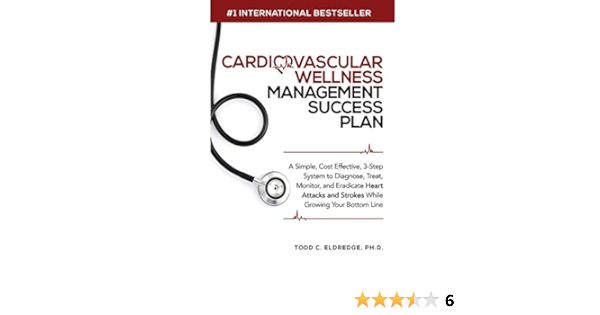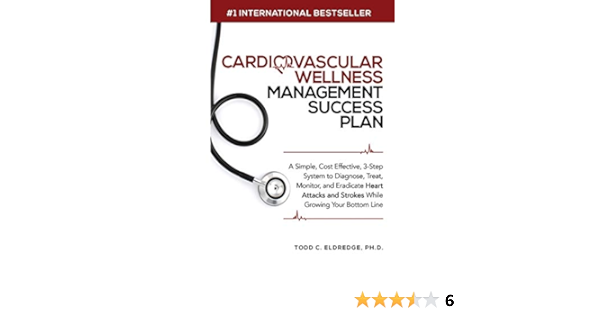Table of Contents
The human heart, a marvel of engineering and resilience, beats tirelessly, pumping life-sustaining blood throughout our bodies. To keep this vital organ in top shape, it’s essential to embrace heart-healthy eating habits. A well-balanced diet, rich in certain essential foods, can significantly reduce the risk of heart disease and promote cardiovascular wellness. In this article, we’ll explore the key components of a heart-healthy diet and the foods you should include to support your heart’s well-being.
Our heart, a true marvel of engineering and a symbol of life itself, tirelessly orchestrates the symphony of our existence, ensuring that every cell receives the nourishment it needs. It’s a tireless performer, beating an average of 100,000 times a day, year after year. To honor this incredible organ and nurture it for a lifetime of well-being, adopting heart-healthy eating habits is paramount.
A heart-healthy diet is more than just a way of eating; it’s a declaration of love and care for our lifeline. It’s about making mindful choices that can significantly reduce the risk of heart disease and pave the way for a life of cardiovascular wellness.
Central to this dietary approach are foods that serve as the pillars of heart health. Here are some key components:
Fresh Fruits and Vegetables: These vibrant treasures are packed with essential nutrients, antioxidants and fiber that help lower blood pressure, reduce inflammation and support overall heart function. The colors of your plate should be a testament to the variety and abundance of fruits and vegetables you consume daily.
Whole Grains: Rich in fiber, whole grains like oats, quinoa and brown rice are excellent choices for heart health. They help manage cholesterol levels, stabilize blood sugar and provide a steady source of energy.
Lean Proteins: Opt for lean protein sources like skinless poultry, fish, beans and legumes. They are low in saturated fats and rich in beneficial nutrients like omega-3 fatty acids, which are known to promote heart health.
Healthy Fats: Embrace the power of unsaturated fats found in olive oil, avocados and nuts. These fats help maintain healthy cholesterol levels and reduce the risk of heart disease.
Limit Sodium and Added Sugars: Be mindful of your salt intake and avoid foods high in added sugars. Excessive sodium can elevate blood pressure, while too much sugar can contribute to weight gain and metabolic issues.
Portion Control: Watch portion sizes to maintain a healthy weight. Excess weight puts additional strain on the heart and can increase the risk of heart disease.
Hydration: Stay well-hydrated with water and limit sugary beverages. Proper hydration supports blood circulation and overall cardiovascular health.
By nourishing our bodies with these heart-healthy foods and practicing moderation in our diets, we not only reduce the risk of heart disease but also contribute to a lifetime of vitality. So, let’s embark on this culinary journey together, exploring the delicious and nutritious world of heart-healthy eating and nurturing our hearts for the vibrant and fulfilling lives they enable.
If you’d like to dive deeper into this subject, there’s more to discover on this page: Healthy diet
The Importance of Cardiovascular Health
Before we dive into the foods that support cardiovascular wellness, let’s understand why heart health is so crucial. Cardiovascular diseases, including heart disease and stroke, remain the leading global causes of death. These conditions often develop over time due to a combination of genetic and lifestyle factors, making them preventable to a large extent. By adopting heart-healthy eating habits, you can take proactive steps to protect your heart and enhance your overall well-being.
Understanding the significance of heart health is the first step toward a longer, healthier life. Let’s delve deeper into why maintaining a healthy heart is crucial and explore how adopting heart-healthy eating habits can be a game-changer for your well-being:
The Heart’s Vital Role: Your heart is the powerhouse of your circulatory system, tirelessly pumping blood to deliver oxygen and nutrients to every cell in your body. It’s a remarkable organ, beating around 100,000 times a day to ensure your body functions optimally.
The Global Health Challenge: Cardiovascular diseases, encompassing heart disease and stroke, pose a significant global health challenge. They consistently rank as the leading causes of death worldwide. The alarming part is that these conditions often develop gradually over time, influenced by factors like genetics, diet, physical activity and lifestyle choices.
Preventable and Manageable: The reassuring news is that a substantial portion of heart-related issues is preventable and manageable. By making informed choices in your daily life, you can substantially reduce your risk of heart disease and stroke. This means you have the power to protect your heart and enhance your overall quality of life.
The Role of Nutrition: Nutrition plays a pivotal role in heart health. The foods you consume directly impact the health of your arteries, cholesterol levels, blood pressure and overall cardiovascular function. By adopting a heart-healthy eating plan, you provide your heart with the nutrients and support it needs to thrive.
Reducing Risk Factors: Heart-healthy eating habits can help mitigate various risk factors associated with cardiovascular diseases. A diet rich in fruits, vegetables, whole grains, lean proteins and healthy fats can help lower LDL (bad) cholesterol levels, reduce high blood pressure and manage blood sugar levels. These factors are essential in minimizing your risk of heart-related complications.
Promoting Overall Well-Being: Prioritizing heart health isn’t just about preventing disease; it’s also about enhancing your overall well-being. A healthy heart means improved energy levels, better physical fitness and increased longevity. It enables you to live a more active, fulfilling life and to enjoy precious moments with loved ones.
Empowerment Through Knowledge: Understanding the link between nutrition and heart health empowers you to make informed dietary choices. It allows you to take control of your health destiny and actively participate in your well-being. It’s not about radical changes but rather sustainable, gradual shifts toward a heart-healthy lifestyle.
Lifelong Journey: Finally, heart health is a lifelong journey. It’s about consistently making choices that support your heart, day in and day out. Whether you’re in your twenties, forties or beyond, it’s never too late to start prioritizing your heart health. Every positive step you take today can have a profound impact on your heart’s well-being in the years to come.
In summary, understanding the importance of heart health is the foundation upon which you can build a healthier future. Cardiovascular diseases are not insurmountable; they are largely preventable. By embracing heart-healthy eating habits, you not only reduce your risk of heart-related issues but also embark on a path to overall well-being, vitality and a more fulfilling life. Your heart is your most loyal ally—nurture it and it will continue to support you for many years to come.
You can also read more about this here: The American Heart Association Diet and Lifestyle Recommendations

Fruits and Vegetables
These natural powerhouses are rich in vitamins, minerals, fiber and antioxidants. They help reduce inflammation, lower blood pressure and improve cholesterol levels. Aim for a variety of colorful fruits and vegetables to ensure you receive a wide range of nutrients.
The vibrant world of fruits and vegetables offers a treasure trove of natural powerhouses for your health. Packed with a bounty of vitamins, minerals, fiber and antioxidants, these colorful delights are not just flavorful additions to your plate; they are essential champions of well-being.
One of the standout benefits of consuming a diet rich in fruits and vegetables is their potent anti-inflammatory properties. The array of phytonutrients found in these foods has been shown to combat inflammation at the cellular level. This is particularly important as chronic inflammation is linked to a host of health issues, including heart disease, diabetes and certain types of cancer. By regularly incorporating these natural wonders into your diet, you’re actively working to reduce inflammation and safeguard your long-term health.
Additionally, the nutritional wealth of fruits and vegetables contributes to better heart health. The fiber content aids in lowering blood pressure and improving cholesterol levels. Soluble fiber, found abundantly in foods like apples, citrus fruits and oats, helps remove cholesterol from the bloodstream, preventing the buildup of plaque in arteries. This, in turn, reduces the risk of heart disease and stroke. Furthermore, potassium-rich vegetables like spinach and sweet potatoes play a role in regulating blood pressure, maintaining a healthy cardiovascular system.
When it comes to fruits and vegetables, diversity is key. Different colors signify distinct nutrient profiles, each offering unique health benefits. For instance, orange and yellow fruits and vegetables are rich in beta-carotene, a powerful antioxidant that supports vision and boosts the immune system. Dark leafy greens like kale and broccoli are dense in vitamins K and C, which are essential for bone health and immune function. By aiming for a variety of colors, you ensure that you receive a wide range of nutrients that work together to fortify your overall health.
Incorporating a rainbow of fruits and vegetables into your daily meals isn’t just a culinary delight; it’s a commitment to a healthier, more vibrant life. These natural wonders not only make your plate more visually appealing but also serve as your allies in reducing inflammation, maintaining heart health and nurturing your body with essential nutrients. So, embrace the world of colorful produce and let its bountiful goodness be your ticket to long-lasting well-being.
If you’d like to dive deeper into this subject, there’s more to discover on this page: What is the best diet for cardiovascular wellness? A comparison of …

Whole Grains
Opt for whole grains like brown rice, quinoa, whole wheat and oats instead of refined grains. They provide essential fiber, vitamins and minerals while stabilizing blood sugar levels and reducing the risk of heart disease.
Opt for whole grains like brown rice, quinoa, whole wheat and oats instead of refined grains. They provide essential fiber, vitamins and minerals while stabilizing blood sugar levels and reducing the risk of heart disease.
Whole grains are a nutritional powerhouse, offering a plethora of benefits beyond their refined counterparts. When you choose whole grains, you’re not just making a dietary choice; you’re making an investment in your long-term health.
Fiber for Digestive Health: Whole grains are packed with dietary fiber, which is essential for a healthy digestive system. Fiber keeps things moving smoothly through your digestive tract, preventing constipation and promoting regular bowel movements. It also supports a diverse and thriving gut microbiome, which has far-reaching effects on overall health.
Steady Blood Sugar: Unlike refined grains, which can cause rapid spikes and crashes in blood sugar levels, whole grains provide a slow and steady release of energy. This stable blood sugar profile is particularly beneficial for individuals with diabetes or those concerned about managing their weight.
Heart Health: The fiber and nutrients found in whole grains have a protective effect on the heart. They help lower levels of harmful LDL cholesterol, reduce inflammation and improve overall cardiovascular health. Regular consumption of whole grains is associated with a lower risk of heart disease.
Weight Management: The satiating effect of whole grains can help you feel full and satisfied for longer periods, reducing the temptation for unhealthy snacking. This can be a valuable tool in managing your weight and supporting your overall wellness goals.
Nutrient-Rich: Whole grains are a rich source of vitamins and minerals, including B vitamins, magnesium and iron. These nutrients are essential for various bodily functions, including energy metabolism, brain health and oxygen transport in the blood.
Antioxidant Protection: Some whole grains, like quinoa and oats, are particularly high in antioxidants. These compounds help protect your cells from damage caused by free radicals and may contribute to a reduced risk of chronic diseases.
Incorporating whole grains into your diet can be as simple as swapping out white rice for brown rice, choosing whole wheat pasta or opting for whole grain bread. These small changes can have a significant impact on your health over time. So, consider whole grains not just as a dietary choice but as a cornerstone of your lifelong well-being, ensuring you enjoy the benefits of a healthier, more vibrant you.
For additional details, consider exploring the related content available here 17 Incredibly Heart-Healthy Foods

Fatty Fish
Salmon, mackerel, trout and sardines are packed with heart-healthy omega-3 fatty acids. These fats can reduce the risk of arrhythmias, lower triglyceride levels and decrease inflammation.
Salmon, mackerel, trout and sardines, often referred to as the “oily fish” family, offer a bounty of health benefits, primarily attributed to their rich content of heart-healthy omega-3 fatty acids. These remarkable fats are like the maestros of a symphony, orchestrating a harmonious blend of cardiovascular well-being.
Omega-3 fatty acids, particularly eicosapentaenoic acid (EPA) and docosahexaenoic acid (DHA), are known to wield their influence over a range of cardiovascular factors. First and foremost, they are champions of heart rhythm. Arrhythmias or irregular heartbeats, can be unsettling and potentially dangerous. Omega-3s step in as natural rhythm regulators, helping to stabilize the heartbeat and reduce the risk of arrhythmias, which can be life-saving.
But that’s not all; these fatty acids have a multi-faceted impact on heart health. They’re like friendly firefighters in the bloodstream, extinguishing the flames of triglycerides, a type of fat that, when elevated, can increase the risk of heart disease. Omega-3s have the remarkable ability to lower triglyceride levels, promoting a healthier lipid profile and reducing the risk of atherosclerosis, the narrowing and hardening of arteries.
Inflammation, the silent instigator of many chronic diseases, also faces the wrath of omega-3s. These fats possess potent anti-inflammatory properties, helping to quell the flames of systemic inflammation that can lead to the development and progression of cardiovascular diseases. By reducing inflammation, omega-3s contribute to a healthier cardiovascular system, with less wear and tear on blood vessel walls.
Incorporating these fatty fish into your diet is like rolling out the red carpet for cardiovascular health. Beyond their omega-3 content, they offer a wealth of high-quality protein, vitamins and minerals. They’re not just nutritious; they’re delicious, too, making them a delectable addition to any meal.
So, when you savor a perfectly grilled salmon fillet or indulge in a plate of mackerel sushi, know that you’re not just treating your taste buds; you’re nourishing your heart and safeguarding your cardiovascular well-being. It’s a flavorful investment in your health that pays dividends in the form of a strong, resilient heart that beats in perfect harmony, keeping your cardiovascular symphony in tune for years to come.
Should you desire more in-depth information, it’s available for your perusal on this page: 17 Incredibly Heart-Healthy Foods

Nuts and Seeds
Almonds, walnuts, flaxseeds and chia seeds are excellent sources of healthy fats, fiber and antioxidants. They can help lower bad cholesterol levels and support overall heart health.
The inclusion of almonds, walnuts, flaxseeds and chia seeds in your diet isn’t just a flavorful addition; it’s a smart choice for your heart and overall well-being. These humble yet powerful foods are packed with an array of nutrients that offer a multitude of benefits beyond their delicious taste:
1. Healthy Fats: Almonds and walnuts are rich in heart-healthy unsaturated fats, including monounsaturated and polyunsaturated fats. These fats have been shown to reduce levels of LDL (bad) cholesterol in the blood, lowering the risk of heart disease. They also provide a source of sustained energy.
2. Fiber: Fiber is a dietary hero and flaxseeds and chia seeds are both fantastic sources. Fiber aids in digestion, promotes regular bowel movements and can help control blood sugar levels. Additionally, it plays a role in lowering cholesterol, which is crucial for heart health.
3. Antioxidants: All four of these seeds and nuts contain antioxidants that help protect your cells from oxidative stress. Oxidative stress is linked to various chronic diseases, including heart disease. Antioxidants combat this damage and support overall health.
4. Omega-3 Fatty Acids: Walnuts, flaxseeds and chia seeds are excellent sources of alpha-linolenic acid (ALA), a type of omega-3 fatty acid. Omega-3s are known for their anti-inflammatory properties, which can reduce the risk of heart disease by lowering inflammation in the body.
5. Weight Management: Incorporating these foods into your diet can help with weight management. The combination of healthy fats, fiber and protein in nuts and seeds can help you feel full and satisfied, potentially reducing overall calorie consumption.
6. Blood Pressure Regulation: Some studies suggest that the nutrients found in these seeds and nuts may help lower blood pressure, another significant factor in heart health.
To reap the benefits of these nutritional powerhouses, consider adding them to your daily routine. Sprinkle chia seeds and flaxseeds on yogurt or oatmeal, toss almonds and walnuts into salads or blend them into smoothies. These simple dietary changes can contribute to lower bad cholesterol levels, reduced inflammation and improved overall heart health, all while tantalizing your taste buds with their delightful textures and flavors. So, the next time you reach for a snack, consider reaching for these heart-healthy options to nourish your body and protect your heart.
You can also read more about this here: Fats, Oils and Heart Health | The Heart Foundation

Legumes
Beans, lentils, chickpeas and peas are rich in fiber, protein and potassium. They can lower blood pressure and reduce the risk of heart disease when incorporated into your diet.
Beans, lentils, chickpeas and peas, often referred to as legumes, are nutritional powerhouses that bring a host of health benefits to your plate. Their impact on blood pressure and heart health is just one facet of their remarkable contributions to overall well-being:
1. Heart Health: As mentioned, legumes are champions in the fight against heart disease. Their high fiber content helps lower cholesterol levels by binding to and eliminating excess cholesterol from the body. This reduces the risk of atherosclerosis (hardening of the arteries) and lowers the chances of heart attacks and strokes.
2. Blood Pressure Regulation: Legumes are rich in potassium, a mineral that plays a key role in regulating blood pressure. Potassium helps counterbalance the effects of sodium, encouraging the relaxation of blood vessel walls and reducing the strain on the cardiovascular system. This natural blood pressure regulation can significantly lower the risk of hypertension.
3. Sustained Energy: The combination of fiber and complex carbohydrates in legumes provides a steady and sustained release of energy. This is particularly beneficial for athletes and active individuals who rely on consistent energy levels during workouts and daily activities.
4. Weight Management: Legumes are a weight-conscious choice. Their high fiber and protein content promote feelings of fullness and satiety, reducing overall calorie intake. This can aid in weight management and support weight loss goals.
5. Diabetes Management: Legumes have a low glycemic index, which means they have a slow and steady impact on blood sugar levels. This makes them an excellent choice for individuals with diabetes, as they help stabilize glucose levels and reduce the risk of blood sugar spikes.
6. Digestive Health: The fiber in legumes supports digestive health by preventing constipation and promoting regular bowel movements. A healthy digestive system ensures efficient nutrient absorption and overall well-being.
7. Versatile Protein Source: Legumes are a valuable source of plant-based protein. They offer an excellent alternative to meat, making them a staple in vegetarian and vegan diets. Their protein content is not only essential for muscle maintenance but also contributes to overall dietary balance.
8. Nutrient Density: Legumes are packed with essential nutrients, including vitamins (such as folate and B vitamins), minerals (like iron and magnesium) and antioxidants. These nutrients play diverse roles in supporting overall health, from cell function to immune support.
9. Sustainable Food Choice: Choosing legumes as a dietary staple has environmental benefits. They require fewer resources to produce compared to animal-based proteins, making them a more sustainable and eco-friendly food choice.
10. Culinary Versatility: Legumes are incredibly versatile in the kitchen. They can be used in a wide range of dishes, from soups and stews to salads and spreads. Their adaptability allows for creativity in the kitchen, making it easy to incorporate them into your daily meals.
Incorporating legumes into your diet is a simple yet powerful step toward enhancing your overall health. Their diverse array of nutrients, along with their heart-protective and blood pressure-regulating properties, makes them a delicious and nutritious addition to your meals. Whether you’re striving for better heart health, improved energy or sustainable eating, legumes are an excellent choice that provides health benefits from the inside out.
Should you desire more in-depth information, it’s available for your perusal on this page: Defining a Healthy Diet: Evidence for the Role of Contemporary …

Lean Proteins
Choose lean protein sources like skinless poultry, lean cuts of meat and plant-based proteins such as tofu and tempeh. Reducing saturated and trans fats from your diet can lower the risk of coronary artery disease.
Selecting the right protein sources is a pivotal decision when it comes to maintaining heart health and reducing the risk of coronary artery disease. By opting for lean protein sources and minimizing saturated and trans fats, you’re taking proactive steps toward a healthier cardiovascular system. Let’s explore the importance of these dietary choices in more detail:
Lean Protein’s Heart Benefits: Lean protein sources, such as skinless poultry, lean cuts of meat and plant-based options like tofu and tempeh, offer a double benefit. They provide the body with essential amino acids for muscle health and repair while being low in saturated fat. Saturated fat can raise LDL (bad) cholesterol levels in the blood, contributing to the formation of arterial plaque. By choosing lean proteins, you ensure your body receives the protein it needs without the excessive unhealthy fats.
Plant-Based Power: Plant-based proteins, including tofu and tempeh, are not only low in saturated fat but also offer additional heart-healthy advantages. They are rich in dietary fiber, which aids in reducing cholesterol levels. Additionally, these plant-based proteins are often sources of unsaturated fats, such as monounsaturated and polyunsaturated fats, which have been associated with a lower risk of heart disease.
Saturated Fat Reduction: High intake of saturated fats, commonly found in fatty cuts of meat, full-fat dairy products and certain tropical oils, has been linked to an increased risk of coronary artery disease. By making conscious choices to limit these saturated fats, you can help lower your LDL cholesterol levels, decreasing the likelihood of plaque buildup in your arteries.
Trans Fat Avoidance: Trans fats, often found in partially hydrogenated oils used in many processed and fried foods, are especially harmful to heart health. They not only raise LDL cholesterol levels but also lower HDL (good) cholesterol levels. Eliminating or minimizing trans fats from your diet is a crucial step in reducing your risk of coronary artery disease and other cardiovascular conditions.
Balanced Nutrition: Choosing lean protein sources and minimizing unhealthy fats is part of a broader strategy for maintaining a heart-healthy diet. It’s essential to complement these choices with a balanced intake of fruits, vegetables, whole grains and nuts. A diverse and nutritious diet provides a wide range of nutrients and antioxidants that promote overall cardiovascular health.
Lifestyle Synergy: Combining a heart-healthy diet with regular physical activity, stress management and not smoking further enhances your heart health. These lifestyle factors work in synergy to reduce the risk of coronary artery disease and promote overall well-being.
In conclusion, selecting lean protein sources and being mindful of saturated and trans fats in your diet are foundational steps in protecting your heart. By making these dietary choices, you’re actively contributing to lower cholesterol levels, reduced arterial plaque formation and a decreased risk of coronary artery disease. It’s a heart-smart decision that pays long-term dividends in your overall health and well-being.
If you’d like to dive deeper into this subject, there’s more to discover on this page: Defining a Healthy Diet: Evidence for the Role of Contemporary …

Dairy or Dairy Alternatives
Low-fat or fat-free dairy products, as well as dairy alternatives like almond milk or soy yogurt, provide calcium and vitamin D for strong bones while helping control blood pressure.
Low-fat or fat-free dairy products, as well as dairy alternatives like almond milk or soy yogurt, offer a dual benefit that extends beyond just the realm of bone health. These nutritious options are like multi-tasking powerhouses in our diet, contributing to overall well-being in more ways than one.
First and foremost, they are a rich source of calcium and vitamin D, both of which are essential for maintaining strong and healthy bones. Calcium, as we know, is the primary mineral responsible for bone density and strength and vitamin D aids in its absorption, ensuring that our bones are well-equipped to bear the weight of our daily activities. So, sipping on a glass of skim milk or indulging in a serving of low-fat yogurt not only satisfies your taste buds but also fortifies your skeletal framework, promoting long-term bone health.
But the benefits don’t stop there. Low-fat dairy and dairy alternatives also play a significant role in managing blood pressure. They are a source of potassium, a mineral that helps counterbalance the effects of sodium in our diet. By maintaining an optimal balance of sodium and potassium, these dairy products contribute to lower blood pressure levels, reducing the risk of hypertension and its associated health complications.
Furthermore, these dairy alternatives, like almond milk and soy yogurt, provide options for individuals with lactose intolerance or dietary preferences. They ensure that everyone can enjoy the advantages of dairy products without discomfort or compromising their dietary choices.
Incorporating low-fat or fat-free dairy products and their alternatives into your diet not only helps protect your bones but also supports cardiovascular health by regulating blood pressure. So, the next time you reach for that calcium-fortified almond milk latte or a creamy spoonful of low-fat yogurt, know that you’re not just savoring a delicious treat—you’re nourishing your body with a wealth of nutrients that contribute to your overall vitality and well-being.
To delve further into this matter, we encourage you to check out the additional resources provided here: DASH Diet Reducing Hypertension through Diet and Lifestyle

Healthy Fats
Incorporate healthy fats like olive oil, avocados and nuts into your diet. These fats can help reduce bad cholesterol levels and lower the risk of heart disease.
Incorporating healthy fats into your diet, such as olive oil, avocados and nuts, is not just about enhancing the flavor of your meals; it’s a wise choice for the long-term health of your heart and overall well-being. These fats, often referred to as unsaturated fats, are your allies in maintaining a healthy cardiovascular system and reducing the risk of heart disease.
Olive oil, celebrated as a staple of the Mediterranean diet, is a heart-healthy superstar. It’s rich in monounsaturated fats, which can help improve your cholesterol profile by lowering levels of LDL (bad) cholesterol while leaving HDL (good) cholesterol intact. This delicate oil also boasts antioxidant properties that combat inflammation, a key contributor to heart disease.
Avocados are another delectable source of heart-healthy fats. They contain primarily monounsaturated fats, which can contribute to improved blood vessel function and reduced blood pressure. Avocados are also brimming with essential nutrients like potassium and fiber, making them a superb choice for cardiovascular health.
Nuts, whether almonds, walnuts or pistachios, are nutrient-dense powerhouses. They’re packed with heart-boosting monounsaturated and polyunsaturated fats, fiber and plant sterols. Regular nut consumption has been associated with lower levels of LDL cholesterol and a reduced risk of heart disease. Just a handful of nuts can make for a satisfying and nutritious snack.
By incorporating these healthy fats into your diet, you not only improve the taste and satiety of your meals but also contribute to better heart health. It’s important to remember that while these fats are beneficial, portion control is key, as they are calorie-dense. Replacing saturated and trans fats in your diet with these healthier alternatives can have a positive impact on your cholesterol levels and, ultimately, lower your risk of heart disease.
In conclusion, embracing the goodness of olive oil, avocados and nuts is a delightful and practical way to prioritize your heart’s health. These foods are not just delicious additions to your diet; they are nutritional powerhouses that can protect your cardiovascular system and contribute to a longer, heart-healthy life. So, make them a regular part of your meals and savor the taste of good health.
You can also read more about this here: A healthy approach to dietary fats: understanding the science and …

Portion Control and Moderation
While these heart-healthy foods are excellent choices, it’s essential to practice portion control and moderation. Overeating, even healthy foods, can lead to weight gain and other health issues that may impact your heart’s wellness. Additionally, limit your intake of foods high in added sugars, salt and trans fats, as they can increase the risk of heart disease.
While these heart-healthy foods are excellent choices, it’s essential to practice portion control and moderation, as these principles are key to maintaining overall heart wellness. The truth is that even the healthiest of foods can contribute to weight gain and potential health issues if consumed excessively. Therefore, it’s vital to strike a balance that aligns with your body’s needs and your individual health goals.
Portion control doesn’t mean depriving yourself; rather, it’s about being mindful of the quantities you consume. It allows you to savor the flavors and benefits of heart-healthy foods while still managing your calorie intake effectively. By understanding portion sizes and listening to your body’s hunger and fullness cues, you can maintain a healthy weight and support your heart’s well-being over the long term.
In addition to portion control, it’s equally important to be mindful of the less heart-friendly elements in your diet. Limiting your intake of foods high in added sugars, salt and trans fats is a crucial step in heart disease prevention. These dietary culprits can raise blood pressure, increase cholesterol levels and contribute to inflammation in the body – all of which are risk factors for heart disease.
Added sugars, often found in sugary beverages, candies and processed foods, can lead to weight gain and insulin resistance, increasing the risk of heart-related conditions like diabetes. Excessive salt intake can elevate blood pressure, straining the heart and blood vessels. Trans fats, commonly found in processed and fried foods, can raise harmful LDL cholesterol levels while lowering the beneficial HDL cholesterol, further increasing heart disease risk.
By consciously reducing your consumption of these harmful ingredients and choosing whole, unprocessed foods instead, you provide your heart with the best possible chance for long-term health. Opt for whole grains, lean proteins, fruits and vegetables and focus on preparing meals at home where you have control over ingredients and cooking methods.
In conclusion, while incorporating heart-healthy foods into your diet is a crucial step towards a healthier heart, it’s equally vital to exercise portion control, practice moderation and be mindful of the less heart-friendly components in your meals. By finding the right balance and making informed choices, you can maintain a healthy weight, reduce your risk of heart disease and ultimately lead a more heart-healthy life. Your heart will thank you for it.
For a comprehensive look at this subject, we invite you to read more on this dedicated page: The American Heart Association Diet and Lifestyle Recommendations

Stay Hydrated and Be Mindful of Beverages
Remember that staying hydrated is also crucial for heart health. Opt for water as your primary beverage and limit the consumption of sugary drinks and excessive caffeine. Consuming too much caffeine can lead to increased heart rate and blood pressure in some individuals.
Indeed, maintaining proper hydration is not only essential for overall well-being but also plays a critical role in promoting heart health. Here are some additional insights into the relationship between hydration and a healthy heart:
Blood Pressure Regulation: Adequate hydration helps regulate blood pressure levels. When you’re well-hydrated, your blood volume remains stable, which means your heart doesn’t have to work as hard to circulate blood throughout your body. This can help prevent spikes in blood pressure, which can strain the cardiovascular system.
Electrolyte Balance: Proper hydration ensures a balance of essential electrolytes like sodium and potassium in your body. Electrolytes are crucial for maintaining healthy heart rhythm. When you’re dehydrated, electrolyte imbalances can occur, potentially leading to irregular heartbeats or arrhythmias.
Reduction of Blood Viscosity: Dehydration can lead to an increase in the viscosity or thickness of your blood. Thicker blood is more difficult to pump through blood vessels, placing extra strain on the heart. Staying well-hydrated keeps your blood flowing smoothly and reduces the risk of clot formation.
Preventing Heat-Related Stress: On hot days or during physical activity, dehydration can lead to heat stress, which can place additional demands on the heart. Ensuring you’re adequately hydrated helps your body regulate temperature and reduces the risk of heat-related cardiac issues.
Maintaining Exercise Performance: Regular physical activity is a cornerstone of heart health. Staying hydrated before, during and after exercise is vital to support endurance and prevent the heart from working excessively hard during workouts.
Choosing Heart-Healthy Beverages: Opting for water as your primary beverage is an excellent choice for heart health. Water has no added sugars, calories or caffeine, making it an ideal choice to maintain proper hydration without the negative effects associated with sugary drinks or excessive caffeine intake.
Balancing Fluid Intake: While water is the best choice, other fluids like herbal teas and unsweetened, low-sodium broths can also contribute to your daily fluid intake. These options provide variety without the drawbacks of excessive caffeine or added sugars.
Monitoring Hydration Status: Pay attention to your body’s signals for thirst and aim to drink water regularly throughout the day. Dark yellow urine can be an indicator of dehydration, so monitoring its color can help you gauge your hydration status.
In conclusion, staying well-hydrated is a key component of heart health. It supports blood pressure regulation, electrolyte balance and overall cardiovascular function. By making water your primary beverage and being mindful of your hydration needs, you can take proactive steps to protect your heart and promote a healthier, more vibrant life.
Explore this link for a more extensive examination of the topic: Defining a Healthy Diet: Evidence for the Role of Contemporary …

Consult with a Healthcare Professional
If you have specific dietary concerns or health conditions, it’s advisable to consult with a healthcare professional or registered dietitian. They can provide personalized guidance to create a heart-healthy eating plan tailored to your needs and preferences.
If you have specific dietary concerns or underlying health conditions, seeking guidance from a healthcare professional or a registered dietitian is a prudent step on your journey to better heart health. Their expertise is invaluable in crafting a customized eating plan that not only aligns with your health needs but also accommodates your individual preferences and lifestyle.
Here’s why consulting with these experts can be a game-changer:
Personalized Assessment: Healthcare professionals and dietitians possess the knowledge and tools to conduct a comprehensive assessment of your health status. They can analyze your medical history, current health metrics and dietary habits to identify specific risk factors or areas of concern related to heart health.
Tailored Recommendations: Armed with a deep understanding of your unique health profile, they can provide you with personalized recommendations. These may include specific dietary modifications, portion control strategies and advice on managing sodium, cholesterol or blood pressure levels.
Goal Setting and Monitoring: Healthcare professionals and dietitians can help you set realistic, achievable goals for improving your heart health. They’ll work closely with you to track your progress and make necessary adjustments to your plan along the way.
Education and Empowerment: Beyond providing dietary guidance, these experts offer education about heart health, helping you understand the reasons behind their recommendations. This knowledge empowers you to make informed choices and establish a sustainable, heart-healthy lifestyle.
Adaptation to Dietary Preferences: Whether you’re vegetarian, vegan, have food allergies or follow a specific cultural or religious dietary pattern, healthcare professionals and dietitians can adapt heart-healthy recommendations to suit your preferences. They can help you find suitable alternatives and ensure your diet remains enjoyable and culturally sensitive.
Holistic Approach: They consider the broader context of your health, addressing not just your diet but also factors like physical activity, stress management and sleep patterns. This holistic approach ensures that your heart health plan is comprehensive and effective.
Long-Term Support: Building a heart-healthy lifestyle is not a short-term endeavor. Healthcare professionals and dietitians offer ongoing support, motivation and guidance to help you maintain your progress and make lasting changes.
In conclusion, when it comes to matters of the heart, seeking professional guidance is a wise investment in your health and well-being. Healthcare professionals and registered dietitians can serve as your partners in creating a heart-healthy eating plan that not only addresses your specific health concerns but also empowers you to make lifelong dietary choices that promote optimal heart health.
To delve further into this matter, we encourage you to check out the additional resources provided here: Life’s Essential 8 | American Heart Association

In conclusion, heart-healthy eating is a cornerstone of cardiovascular wellness. By embracing a diet rich in fruits, vegetables, whole grains, lean proteins and healthy fats, you can significantly reduce the risk of heart disease and promote a healthier, more vibrant life. Remember that the choices you make at every meal are an investment in your heart’s future, ensuring it continues to beat strong and steady for years to come.
In conclusion, adopting a heart-healthy diet isn’t just about safeguarding your cardiovascular health; it’s a commitment to your overall well-being and longevity. The choices you make at every meal go beyond immediate satisfaction; they are investments in your heart’s future, ensuring it remains robust and resilient for years to come.
Here are a few additional points to drive home the importance of heart-healthy eating:
1. Long-Term Benefits: The benefits of a heart-healthy diet extend far beyond reducing the risk of heart disease. It can enhance your quality of life by reducing the likelihood of other chronic conditions like diabetes, certain cancers and obesity.
2. Sustainable Lifestyle: Embracing heart-healthy eating isn’t about quick fixes or short-term gains. It’s about adopting a sustainable lifestyle that promotes well-being throughout your life’s journey.
3. Setting an Example: Your dietary choices can have a profound impact on those around you, especially your family. By prioritizing heart-healthy foods, you set an example for your loved ones and inspire them to make healthier choices as well.
4. Enjoying Food: Heart-healthy eating isn’t about deprivation; it’s about finding joy in nourishing your body with wholesome, delicious foods. It opens the door to culinary exploration, allowing you to savor a wide array of flavors and textures.
5. Empowering Yourself: By making informed choices about what you eat, you empower yourself to take control of your health. You become an active participant in your well-being, reducing reliance on medications and medical interventions.
6. Celebrating Life: Every meal is an opportunity to celebrate life and prioritize self-care. It’s a moment to savor the richness of existence and cherish the simple pleasures of nourishing your body and soul.
In essence, heart-healthy eating is a holistic approach to living your best life. It’s about cherishing the incredible gift that is your heart and nurturing it with the care and attention it deserves. So, as you sit down to your next meal, remember that each bite you take is a gesture of love and respect for your heart’s unwavering dedication to keeping you vibrant and alive. By choosing wisely, you’re not only protecting your heart; you’re embracing a life filled with vitality and wellness.
Don’t stop here; you can continue your exploration by following this link for more details: Keto, paleo diets aren’t helping your heart, report says – The …
More links
Looking for more insights? You’ll find them right here in our extended coverage: 17 Incredibly Heart-Healthy Foods
